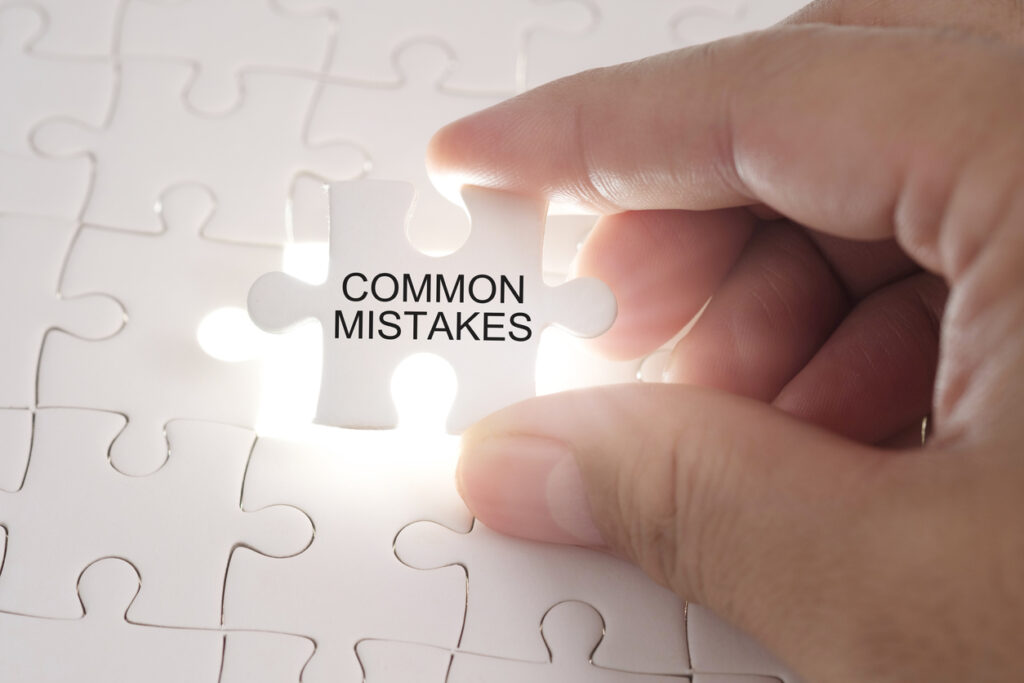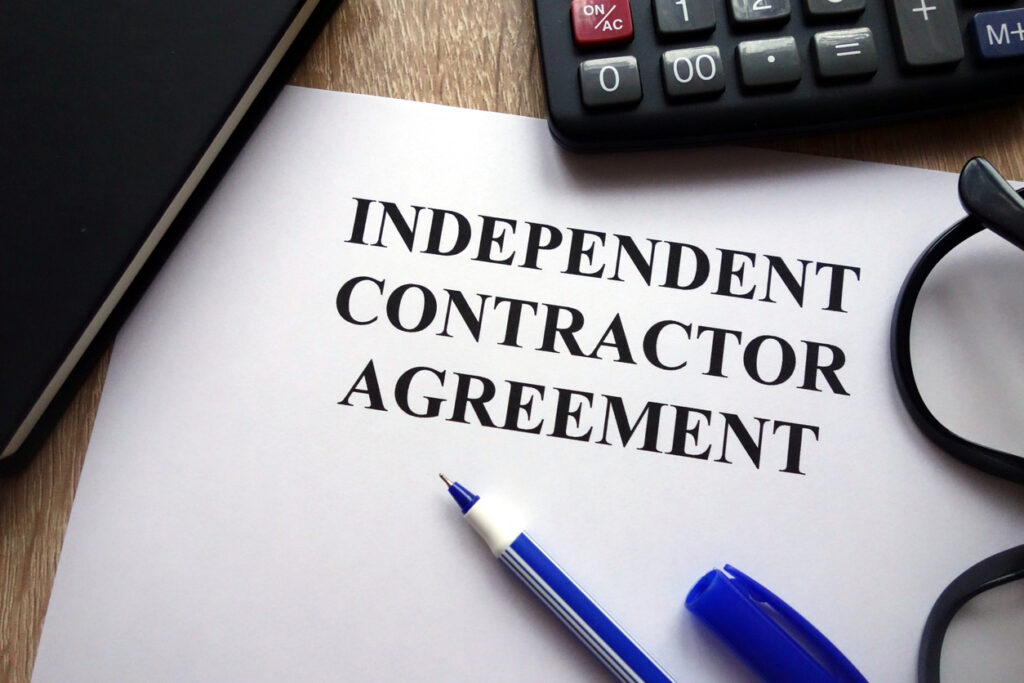7 Common Legal Mistakes to Avoid as a New Business
Starting a new business can be exciting. For many businesses, the excitement is the thrill of seeing their venture prosper and grow. For other businesses, though, this initial excitement can turn into regret caused by major legal issues that occur due to mistakes made during the business startup process.
Here are some of the common legal mistakes that people make when forming a business so you will be more likely to avoid them. The good news is all of these mistakes are easily sidestepped by working with an experienced startup business lawyer who can guide you through the process and make sure your interests are protected every step of the way.

Not Protecting Your Personal Property
A business is risky. If you’re not careful, you might be risking everything in your business venture. One of the most important things you need to do when starting a business is to take steps to protect your personal property from business liabilities.
This is especially true if you work in any field that carries liability risks, such as construction or healthcare. However, it’s also important if you are considering acquiring any kind of debt to help start your business – that business debt can quickly overwhelm your personal capacity for paying it.
Not Having Good Written Agreements
A lot of people enter business naively assuming that your word and a handshake is enough to secure a deal. In business, there are many situations where it’s important to clarify the details of a deal so that everyone proceeds with the same understanding.
When you are starting a business with others, it’s important to make strong partnership documents that define key elements like ownership of the assets, liability for losses, and payment from profits. This is important even if you aren’t forming a legal corporation.
It’s also important to have strong contracts that define your relationship to clients. You need to make sure that you have legal remedies in place in case they opt not to pay your invoices. You also need to define your liability in the event that something goes wrong with your work.
Finally, it’s important to have contracts with your employees, but we’ll talk about that in more detail later.
Not Keeping Good Books to Preserve Liability Protection
You might think that you’ve protected your personal assets by setting up a corporation or limited liability company (LLC), but that’s only the first step. Next, you have to make sure that you’re keeping business and personal property separate. If you are using personal assets in the business or using business assets as if they were your personal property, you might erode the protection your legal documents provide.
To avoid this problem, keep careful track of what are personal assets and what are business assets, and use them accordingly.
Unclear Relationships with Contractors or Employees
Bringing on employees is a big responsibility for your business. There are major tax implications and numerous regulations governing how you are supposed to treat your employees. Often, it makes more sense to work with an independent contractor at first. It simplifies the interactions from the standpoint of your business and reduces your tax liabilities.
The problem is that if you are essentially declaring someone an independent contractor when they’re really an employee, you can create a major legal problem for your business. Make sure that you are really treating independent contractors as independent contractors, not as employees. When you really need an employee, go ahead and take the plunge into the labor pool. Just make sure you’re protected with proper employment contracts and that you understand your legal obligations to employees.

Not Protecting Intellectual Property
When you think about protecting your assets, it’s easy to forget about your intellectual property (IP). However, for many small businesses, especially tech start-ups, your IP is your most valuable asset.
Make sure you’re protecting your software and other IP by taking appropriate steps like registering copyrights and trademarks. Don’t forget to take steps to protect your IP from partners. You may trust them. You may think they are your friends. However, the history of the tech industry is littered with creators who lost control of their ideas. It’s a good idea to make sure you keep control of your personal IP or at least make sure that you will receive adequate payment for your contributions to the business.
Ignoring Regulations
All businesses must contend with tax regulations and employment laws. However, some businesses must deal with specific regulations that govern their industry. For many businesses, the web of regulations they must contend with can be quite complex, and if you violate them, the consequences can be severe.
You can’t plead ignorance to avoid the penalties of breaking regulations. Instead, it’s best to talk to a business planning lawyer to understand the major regulations affecting your industry.
Not Having a Start-up Business Lawyer
What we’re looking at here are just the common legal mistakes that many businesses make. However, there are plenty of uncommon legal mistakes you might make, and you may only discover them by making them, at which point you need the help of a business planning lawyer.
Having a business formation lawyer that you work with from the beginning can help you understand the potential risks facing your business so that you can avoid legal troubles rather than struggling to get out of them.
Elizabeth Lewis is a business lawyer who has been helping small businesses in Colorado since 2007, including many start-ups. She has helped people figure out how to organize their business to protect their personal property and helped them secure their valuable IP.
She is very supportive, focused on building a relationship with your business and achieving the results your business needs to get started. In addition, Elizabeth has the experience necessary to help you navigate a wide range of legal matters after your business becomes established. This ensures you’ll have the legal protection you need moving forward as your business grows and evolves.
If you are looking for a lawyer to help your start-up navigate legal challenges, please contact the Law Office of E.C. Lewis today for a consultation.

